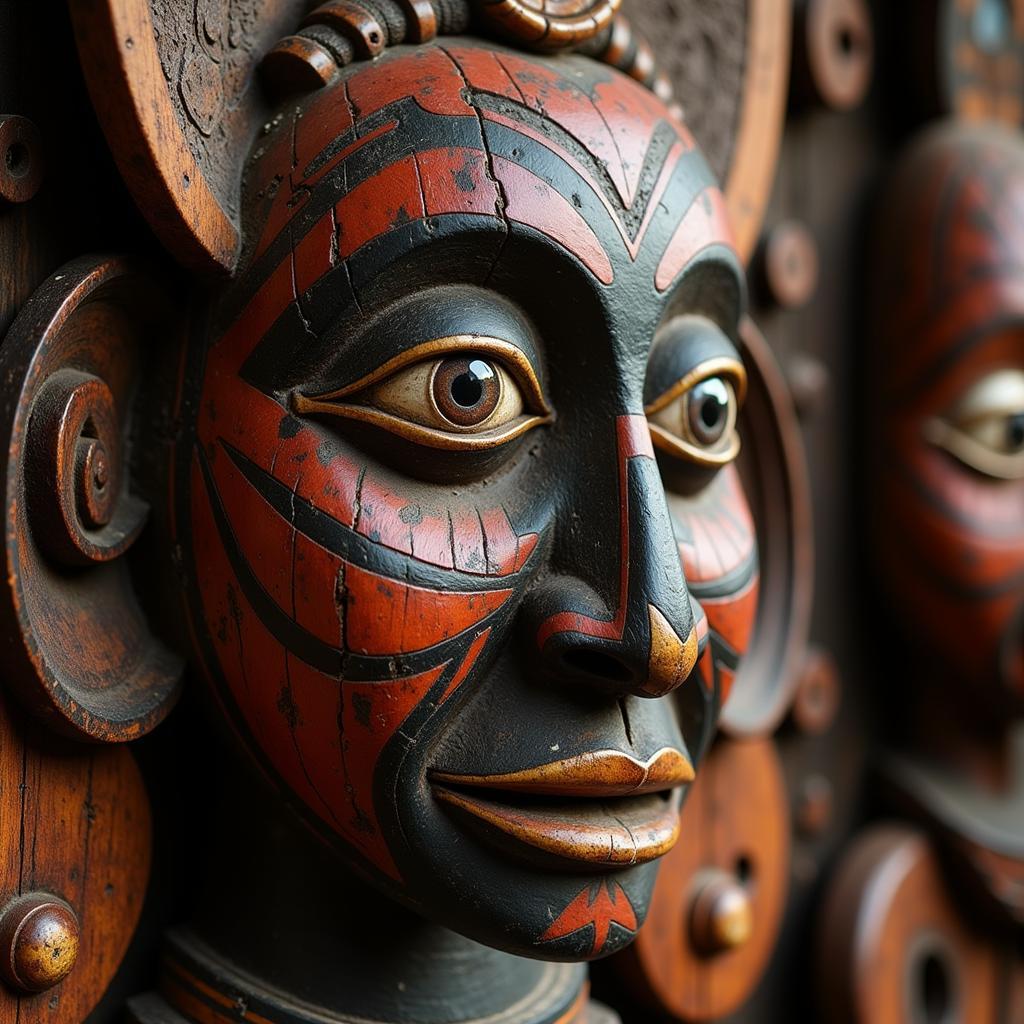Exploring the Diversity of African English Speech Audio
African English, a vibrant tapestry of languages and dialects, is as diverse as the continent itself. From the bustling markets of Nigeria to the tranquil savannas of Kenya, the sounds of English take on unique flavors and rhythms. The beauty of African English lies in its ability to blend the familiar with the new, creating a linguistic landscape that is both captivating and complex. This article delves into the world of African English Speech Audio, exploring its origins, characteristics, and the factors that contribute to its rich diversity.
A Tapestry of Influences: The Birth of African English
The story of African English begins with the arrival of European colonizers in the 15th century. As trade routes opened up and colonial settlements established, English began to intertwine with indigenous African languages. This linguistic encounter gave rise to a multitude of pidgins and creoles, simplified forms of language that facilitated communication between different linguistic groups.
Over time, these pidgins and creoles evolved, incorporating grammatical structures and vocabulary from both English and African languages. The process of language contact and evolution continues to this day, resulting in a dynamic spectrum of African English varieties spoken across the continent.
Distinctive Features of African English Speech Audio
While each region boasts its own unique features, there are some common characteristics that unite African English varieties. These include:
- Prosodic features: African English speech often exhibits a distinctive rhythm and intonation pattern, influenced by the tonal nature of many African languages. This can result in a more melodic and expressive style of speech.
- Phonological variations: There are significant variations in the pronunciation of vowels and consonants across different African English varieties. For example, the “r” sound might be pronounced as a trill or a tap, depending on the region.
- Lexical innovations: African English has incorporated a vast number of words and phrases from indigenous African languages. These loanwords often reflect local customs, traditions, and cultural concepts, adding a rich layer of meaning to the language.
- Grammatical adaptations: In some cases, African English speakers may adapt English grammar to align with the structures of their native languages. This can lead to unique sentence constructions and verb conjugations.
Regional Variations: A Symphony of Accents
From the lilting tones of Ghanaian English to the clipped cadences of South African English, the continent is a symphony of accents. Let’s take a closer look at some of the most prominent regional varieties:
- West African English: Characterized by its strong rhythm and influence from languages like Yoruba and Igbo, West African English is spoken in countries like Nigeria, Ghana, and Liberia.
- East African English: Influenced by Swahili and other Bantu languages, East African English has a more melodic quality and is spoken in countries like Kenya, Tanzania, and Uganda.
- Southern African English: With its distinctive pronunciation of vowels and consonants, Southern African English reflects the influence of languages like Afrikaans and Zulu. It is spoken in countries like South Africa, Zimbabwe, and Botswana.
The Impact of African English on Global Culture
African English is not merely a collection of regional dialects; it is a powerful force shaping global culture. Here are a few examples of its impact:
- Literature: African writers have made significant contributions to world literature, using English as a medium to tell their stories and share their perspectives. Authors like Chinua Achebe, Wole Soyinka, and Chimamanda Ngozi Adichie have gained international recognition for their powerful narratives written in African English.
- Music: From the infectious beats of Afrobeat to the soulful melodies of Highlife, African music has captivated audiences worldwide. The use of African English in lyrics has helped to popularize these genres and spread African culture to a global audience.
- Film: Nollywood, Nigeria’s booming film industry, is one of the largest in the world. Many Nollywood films feature characters speaking African English, showcasing the language’s diversity and its ability to connect with audiences from various backgrounds.
Preserving Linguistic Diversity: A Shared Responsibility
As the world becomes increasingly interconnected, it is crucial to preserve the diversity of languages and dialects. African English, with its rich history and unique characteristics, is a testament to the power of language to adapt and evolve.
It is our shared responsibility to celebrate and promote the use of African English in all its forms. This includes supporting educational initiatives, fostering language documentation efforts, and encouraging the use of African English in various media platforms.
Conclusion: A Language on the Rise
African English is a dynamic and evolving language that reflects the continent’s rich cultural heritage and linguistic diversity. From its humble beginnings as a language of trade to its current status as a global force, African English has come a long way. As the continent continues to grow and develop, so too will the influence and reach of this vibrant language.
If you’re interested in learning more about African English speech audio, there are numerous resources available online and in libraries. You can also connect with African English speakers from around the world through social media and language exchange platforms. Embrace the diversity of African English and embark on a journey of linguistic discovery.
FAQs
1. What are some common misconceptions about African English?
One common misconception is that African English is a single, homogeneous language. In reality, it is a diverse collection of varieties, each with its own unique features and influences. Another misconception is that African English is “broken” or “incorrect” English. However, African English varieties are legitimate languages in their own right, with their own grammatical rules and structures.
2. How can I learn to understand different African English accents?
The best way to learn to understand different African English accents is through exposure. Listen to recordings of speakers from different regions, watch African movies and TV shows, and interact with African English speakers whenever possible.
3. Is there a standard form of African English?
There is no single standard form of African English. However, some countries have developed their own standard varieties for use in education and formal settings.
4. What is the future of African English?
The future of African English is bright. As the continent continues to grow and develop, the language is likely to become even more widespread and influential.
5. Where can I find more resources on African English?
There are numerous resources available online and in libraries. You can also connect with African English speakers from around the world through social media and language exchange platforms.
Other Resources
- African Languages: An Introduction
- The Cambridge History of the English Language
- The Routledge Companion to African English Literature
For assistance, please contact us at +255768904061 or kaka.mag@gmail.com. You can also visit us at Mbarali DC Mawindi, Kangaga, Tanzania. Our customer service team is available 24/7.

